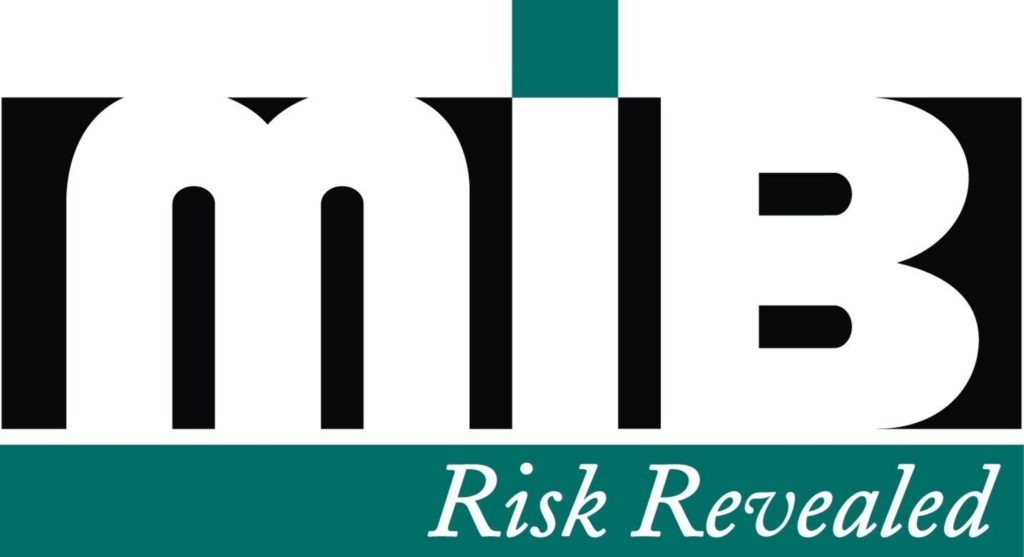An entrepreneur at heart, Chris has been building and writing in consumer life insurance and health for over 11 years. He's contributed to 1,000+ medical, health, financial and wellness articles and product reviews written in the last 11 years.In addition to Pharmacists.org, Chris and his Acme Health LLC Brand Team own and operate Diabetic.org, PregnancyResource.org, Multivitamin.org, and the USA Rx Pharmacy Discount Card powered by Pharmacists.org.Chris has a CFA (Chartered Financial Analyst) designation and is a proud member of the American Medical Writer’s Association (AMWA), the International Society for Medical Publication Professionals (ISMPP), the National Association of Science Writers (NASW), the Council of Science Editors, the Author’s Guild, and the Editorial Freelance Association (EFA).
Home » What Is the Medical Information Bureau?
What Is the Medical Information Bureau?

Matt Schmidt



Chris Riley
To learn about Diabetes Life Solutions commitment to transparency and integrity, read our Editorial Disclosure
Last Updated on June 14, 2025
Applying for life insurance is pretty simple, when you think about it. Even with having a type of Diabetes, the application process is generally simpler than most people imagine. A specific company is going to ask various health questions, and they will do a ‘background check’ on you. After all, they are considering insuring you – so they want to know just how great a risk you are. This Medical Information Bureau review is not just completed for people with Diabetes, but rather almost every applicant who’s applying for life insurance.
The Medical Information Bureau is extremely valuable to insurance companies to review an applicant’s past insurance activity. If considering a non medical exam option, the MIB life insurance will be the main determining factor in your approval. Even if you’re applying for coverage on a fully underwritten basis, a MIB check will be completed as well.

When applying for coverage, you may be tempted to reduce your weight or deny having a particular medical condition. Maybe even mis-state your glucose or A1C history. Or maybe you say your type 1 diabetes or type 2 diabetes is under better control than it actually is. Who would know?
Your underwriter. And, it is all thanks to the Medical Information Bureau.
Quick Article Guide
Here’s what we’ll cover in this post:
The MIB: An Explanation
MIB stands for Medical Information Bureau (not Men in Black). This is an agency owned by insurance companies throughout the U.S. and Canada that was developed in 1902 with a means of protecting insurance companies from fraud. We like to compare the MIB to a Credit Report.
When you begin your quest for life insurance, the companies you apply to need to have some information on you in order to make an offer of life insurance coverage. Are you a risk? Are you dealing with a life-threatening health concern? Are you unusually healthy? You can tell them what you want to hear and – without anything to compare it to – they are forced to believe you. Unfortunately, this can lead to many policies being written for risky individuals that claim to be a minimal risk.

Hence, the Medical Information Bureau was formed to help keep things a bit more honest – and coverage a bit more affordable. Underwriters can reach out to the MIB life insurance and obtain a file of information and verify the information you have provided on your application. We want to point out that the information in a MIB file is to simply ‘match up’ the information you provided on your life insurance application. If something in your background doesn’t match up with your answers on the application, underwriters will have follow up questions for you.
Many people with diabetes tend to gravitate towards no medical exam policies. If an insurance company doesn’t have access to your lab results from a blood and urine exam, they are going to have to trust your answers on the health questions on the application. They’ll also do a prescription drug background check. So the information they gather to make an underwriting decision is fairly minimal.
If you have previously applied for coverage, your information should have been submitted by the underwriter to the Medical Insurance Bureau. Please note that they do not simply have a file on every person in the country. In other words, if you have never applied for coverage, the amount of information the MIB would have on you would be minimal, if at all. The MIB will only have information on you if you’ve applied for life insurance in the past. Now if you’ve never applied for life insurance before, you’ll NOT have a file with the Medical Information Bureau. And this will not be used against you while applying for coverage.
As an example, let’s say you applied to an insurance company, that required a review of medical records, and a blood test. Inside your medical records, there was a history of Neuropathy or Retinopathy. Or maybe your A1C from the blood test came back at 8.3. This information would be reported to the MIB, and would be shared with other insurance companies that you may apply to in the future. The information in your MIB file will then be shared to an underwriter to help support the information you provided on your life insurance application.
Some times, information in your MIB may not be accurate. Perhaps another agent or insurance company reported incorrect information to the Medical Information Bureau. If you are experiencing issues like this, then you’ll want to get your file corrected ASAP. We are happy to provide step by step guidance to you, if needing assistance. It may be wise to get your MIB cleaned up, before attempting to reapply for any life insurance.
The information in your Medical Insurance Bureau file will then be shared to an underwriter to help support the information you provided on your life insurance application.
Using the MIB
The MIB is used by underwriters as a tool for verification. Perhaps you falsified information or left out information on your application. Or maybe it was an honest mistake that just got overlooked. The file provided by the MIB can fill in the blank spots or errors.
The typical information that is provided by the MIB is:
- medical conditions or impairments.
- types of treatments.
- when the condition was diagnosed.
- when the treatment occurred.
- the date of any previous insurance applications.
- a statement of where the information provided came from.
By piecing together all of the information obtained, underwriters can put together a fairly clear health profile of the applicant. If you answer a certain question on the application, and the MIB report contains information that doesn’t support your answer, this could delay your application from getting approved. Or this may require you to provide an explanation to your agent, who will then relay it onto the underwriter.
One issue that many people with Diabetes come up against often times is having a ‘negative’ A1C reading in their MIB file.
Example: You apply for coverage 6 months prior to a new application. That old A1C reading will be in your MIB report. When you re-apply, for a no medical exam policy it would be wise to tell your agent, what your most recent A1C reading is. Your agent can then report this to the underwriter.
We all know A1C’s can improve over a 6 month period. So any additional information you can give to your agent, would be a wise move to make!
If you are wanting to apply for a policy that requires blood/urine testing, and a review of medical records, the MIB report becomes a little less important. Why? Because the life insurance companies are reviewing your most recent lab results and medical history. This updated information gives an underwriter a realistic picture of your current health. With this being said, insurance companies will still run a MIB review, but they’ll put more of an emphasis on your lab results and information in health records as that information gives a more accurate assessment of current health.
Insurance Companies Rely on the Information Provided by the MIB
Why do you think life insurance companies rely on this information? Because they want to make sure they are making the wisest decision possible when they give you the option for life insurance coverage. Whether you are applying for term life insurance, or whole life insurance, companies are going to review your MIB report.
The underwriter must determine how risky you are to the insurance company. The riskier you are, the higher your premiums. In some circumstances, if your MIB contains negative information, you’ll be declined all together by most life insurance companies.
See, life insurance companies want to try and collect as many monthly premiums as they possibly can, before making a death claim to the beneficiary. This is why they take your health information so seriously.
For example, if they think your health profile looks rough and that you may not make it through the end of your policy, then they are going to want to get as much money as they can from you – and that is why you will see high premiums.
For those who choose to leave off pertinent information about health or lifestyle risk, the MIB can provide the information to the underwriters. And that is why insurance companies use the MIB. It helps protect them against applicants who may not be 100% truthful on their applications.
A Time to be Honest
Nearly everyone has told a white lie at some point in life. But, when it comes to applying for life insurance coverage, telling a lie doesn’t pay. Underwriters and life insurance companies are evolving over time. They can find out all sorts of information, whether through your motor vehicle records, your pharmacy records, your information with the MIB, and so forth. In fact, it is the job of the underwriter to put together an as-accurate-as-possible risk profile on you. It’s even rumored that life insurance companies may start snooping around on ‘social media’ to see even more about your lifestyle.

If you lie on your application, there is a very good chance that somewhere through the application process, it is going to come up. When things from your medical history and background reports don’t match what you are currently stating on your application, red flags are going to be thrown. Questions will be asked to you for clarification.
Not only does this information create confusion in your current application, but your file with the MIB may be flagged due to inconsistencies and give you issues in the future. We’ve seen several cases in the past where an underwriter will decline an application because the information is not matching up with the MIB report.
All of these tools are put in place so that everyone has an opportunity to obtain their most affordable life insurance. Just be honest. It’s nearly impossible to ‘trick’ or ‘defraud’ a life insurance company. Not to mention, if you were to pass away in the first two years of the policy, insurance companies can contest the death benefit payout. Meaning they may investigate your health profile at time of your death, to see if there were any material misrepresentations made on the application.
Want to Know What Your File with the MIB Says About You?
By now you are likely wondering what the Medical Information Bureau says about you. Believe it or not, you can access your file and have it sent to you so that you may take a look. Falling under the Fair Credit Reporting Act (FCRA), customers in the United States and Canada have the rights, protections, and privileges that are available under the FCRA. This includes your report from MIB insurance. Once each year, you are able to request your file from the MIB.
Your MIB exists if:
- you applied for insurance within the last 7 years
- you applied for life, health, disability income, long-term care, or critical illness insurance
- you applied to an insurance company that was/is a member of the Medical Information Bureau
If you have been denied coverage or if you think you may have a MIB insurance file, then you can request your copy here. In the event you have never applied for life insurance in the past 7 years, your report will be empty. This isn’t a negative issue, but rather will show underwriters you have no application activity in recent memory.
 There is no need to worry about your medical information floating around or getting into the wrong hands. This information is specifically coded and falls under the strict laws of HIPAA. It is not used for anything outside of helping a life insurance company make a decision on approving you for life insurance coverage.
There is no need to worry about your medical information floating around or getting into the wrong hands. This information is specifically coded and falls under the strict laws of HIPAA. It is not used for anything outside of helping a life insurance company make a decision on approving you for life insurance coverage.
You never know what you are going to encounter when you begin the quest for life insurance. Especially if you have Diabetes. The Diabetes community doesn’t have it as ‘easy’ as most people do when looking into life insurance. And, you don’t need to do it alone. One of our Diabetes Life Insurance agents can be there with you every step of the way to ensure that you are getting the best policy at a price you can afford.
Final Thoughts
Don’t be freaked out or too worried about your Medical Information Bureau report. In the event you do have some concerns, you may wish to request a report from them. You can then share this report with an agent. If there’s any inaccuracies, we can provide some guidance to try and get this cleared up for you.
Speak with an agent at Diabetes Life Solutions, and let us walk you through the life insurance application process. You’ll only receive honest and accurate information from us. We’ll let you know what types of policies will be in your best interest. Contact us today!

Matt Schmidt
Matt Schmidt is a nationally licensed diabetes insurance expert. Over this time frame he's helped out over 10,000 clients secure life insurance coverage with Diabetes. He's frequently authors content to Forbes, Entrepreneur, The Simple Dollar, GoBanking Rates, MSN, Insurancenews.net, and Yahoo Finance and many more.
Matt Schmidt is also the Co-Founder of Diabetes Life Solutions and Licensed Insurance agent. He’s been working with the Diabetes community for over 18 years to find consumers the best life insurance policies. Since 2011, he has been a qualified non-member of MDRT, the most prestigious life insurance trade organization in the USA
Find out how much life insurance with Diabetes Life Solutions costs




